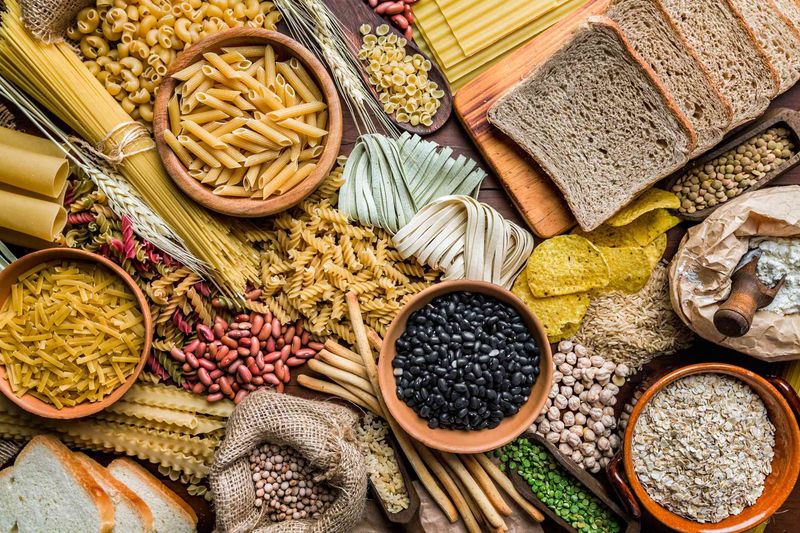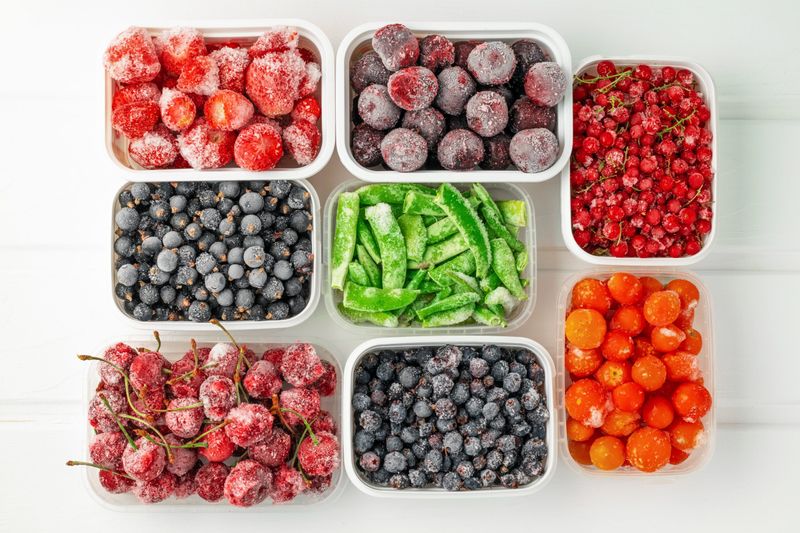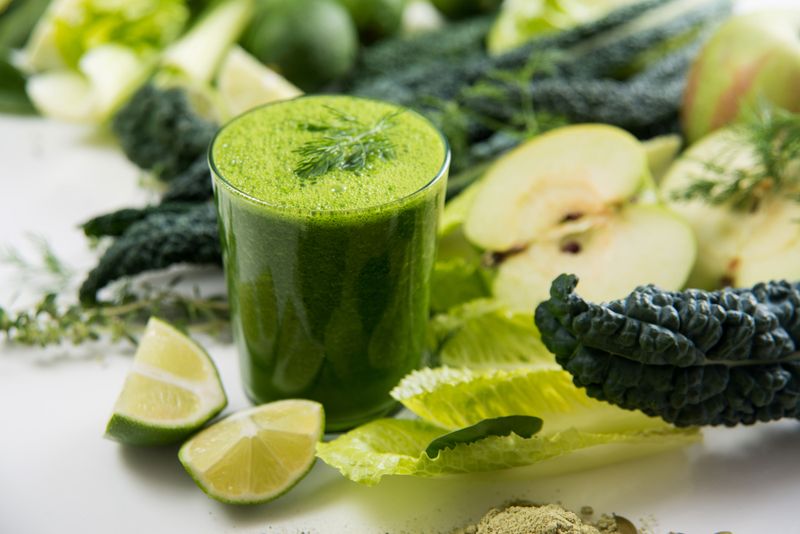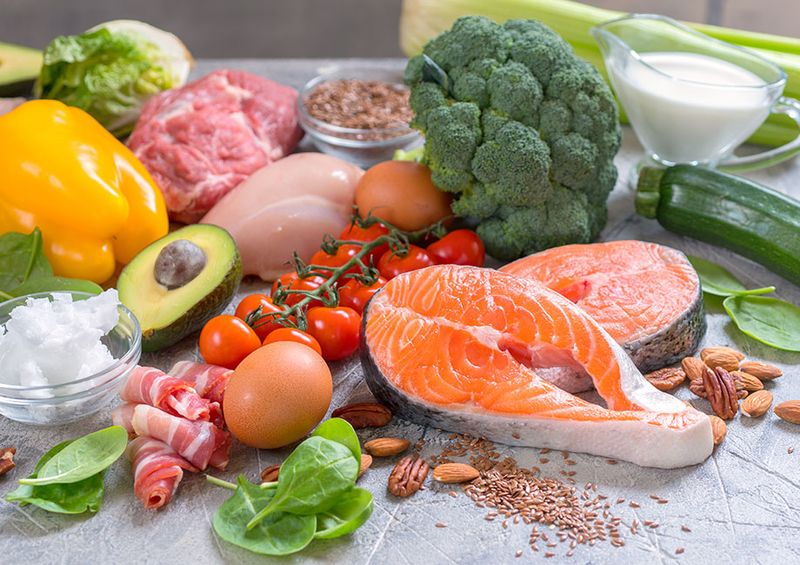Food myths have been around for centuries, influencing our eating habits and shaping our perceptions of what’s healthy and what’s not.
Despite advancements in nutritional science, many of these myths persist, leading to confusion and sometimes poor dietary choices.
In this post, we’ll debunk ten common food myths, providing clarity and insight into the foods we eat every day.
1. Myth 1: Carbs Are Bad for You
The villainization of carbohydrates is a common narrative in dieting circles. Yet, carbs are essential for providing energy to the body. They fuel workouts, brain function, and daily activities, making them indispensable.
Whole grains, fruits, and vegetables are excellent sources of carbohydrates that also offer fiber, vitamins, and minerals. The key lies in choosing complex carbs over refined ones.
Embracing a balanced approach to carbohydrate consumption benefits health more than cutting them out entirely.
Did you know? Cultures with a high-carb diet, like the Japanese, often lead the world in longevity. Balance, not avoidance, should be the mantra.
2. Myth 2: All Fats Are Unhealthy
Fats have long suffered from a bad reputation. However, they play crucial roles in hormone production, cell structure, and nutrient absorption. Healthy fats, such as those found in avocados, nuts, and olive oil, are beneficial for heart health.
The Mediterranean diet, rich in these fats, is often praised for its positive health outcomes. Unlike trans fats found in processed foods, these natural fats can be part of a healthy diet.
Eating the right types of fats in moderation supports well-being without compromising flavor or satisfaction in meals. Fun fact: Countries with high olive oil consumption often report lower heart disease rates.
3. Myth 3: Fresh Produce Is Always Healthier Than Frozen
The belief that fresh produce trumps frozen is common but not entirely true. Frozen fruits and vegetables are often picked at peak ripeness and quickly frozen, preserving nutrients effectively.
In contrast, fresh produce may lose nutrients during transportation and storage. This means that nutrient levels can sometimes be higher in frozen options.
Including both fresh and frozen produce in your diet can offer variety and nutritional benefits.
Quirky insight: In some cases, frozen peas have more vitamins than their fresh counterparts due to the rapid freezing process.
4. Myth 4: Eating Late at Night Causes Weight Gain
The idea that nighttime eating leads to weight gain is misleading. Weight gain results from consuming more calories than the body needs, regardless of the clock.
Metabolism doesn’t shut down at night, and the body’s energy needs remain throughout the 24-hour cycle. The type and amount of food consumed are more critical than timing.
Enjoying a mindful snack or meal at night can fit within a balanced diet without adverse effects. Surprisingly, some studies suggest that eating small, balanced meals in the evening can support metabolism.
5. Myth 5: Detox Diets Cleanse Your Body
Detox diets claim to rid the body of toxins, but the truth is, our bodies are equipped with organs like the liver and kidneys that naturally detoxify.
These diets often involve severe restrictions that can lead to nutrient deficiencies rather than health improvement. Instead of detoxing, focusing on a balanced diet supports natural cleansing processes.
Opt for whole foods, hydration, and regular exercise for optimal health instead of restrictive detox plans.
Curious fact: Your skin, one of the largest organs, plays a vital role in eliminating toxins through sweat.
6. Myth 6: Organic Foods Are Always Better
The organic label doesn’t guarantee superior nutrition or safety. Organic foods are grown without certain pesticides and fertilizers, but that doesn’t necessarily make them healthier.
Nutrient content can be similar between organic and non-organic produce. What matters more is a diet full of diverse and colorful fruits and vegetables, regardless of the farming method.
While choosing organic can support environmental sustainability, it’s not the only path to healthy eating. Did you know? Both organic and conventional farming can contribute equally to biodiversity when managed properly.
7. Myth 7: High-Protein Diets Are Best for Weight Loss
Protein is vital, but excessive consumption doesn’t guarantee weight loss. High-protein diets can lead to temporary weight loss due to water loss rather than fat reduction.
Balance is key, and incorporating various food groups ensures nutrient adequacy and long-term success. Overemphasizing protein might result in missing out on essential nutrients from carbs and fats.
Including lean proteins, whole grains, and healthy fats creates a sustainable diet. Fun tidbit: Some plant-based proteins offer all nine essential amino acids, just like meat!
8. Myth 8: Coffee Stunts Your Growth
This myth likely began as a strategy to dissuade young people from caffeine. However, no scientific evidence supports the claim that coffee affects height.
Adults and children can enjoy coffee in moderation without worrying about growth. However, caffeine can affect sleep, so moderation remains essential for good health.
More than growth, focus on ensuring a balanced diet and adequate calcium intake for bone health. Intriguing note: Countries with high coffee consumption report no stunted growth in their populations.
9. Myth 9: You Need 8 Glasses of Water a Day
The notion of needing exactly eight glasses of water daily is a simplification. Hydration needs vary based on factors like climate, physical activity, and individual health.
Listening to your body’s thirst cues is more effective than fixating on a specific number. Foods like fruits and vegetables also contribute to hydration.
Adjust your water intake according to your lifestyle and conditions. Fascinatingly, some cultures primarily rely on tea or broth for their hydration needs.
10. Myth 10: Spicy Food Causes Ulcers
Spicy foods are often blamed for ulcers, but they’re not the culprits. Most ulcers are caused by bacteria called Helicobacter pylori or long-term use of NSAIDs.
In fact, some studies suggest that capsaicin, the compound in chili peppers, may protect the stomach lining by increasing mucus production.
While spicy foods can irritate existing ulcers, they don’t cause them. Remember, moderation is key, and listening to your body helps maintain digestive comfort. Fun fact: Some cultures with spicy diets report lower ulcer rates.










Leave a comment